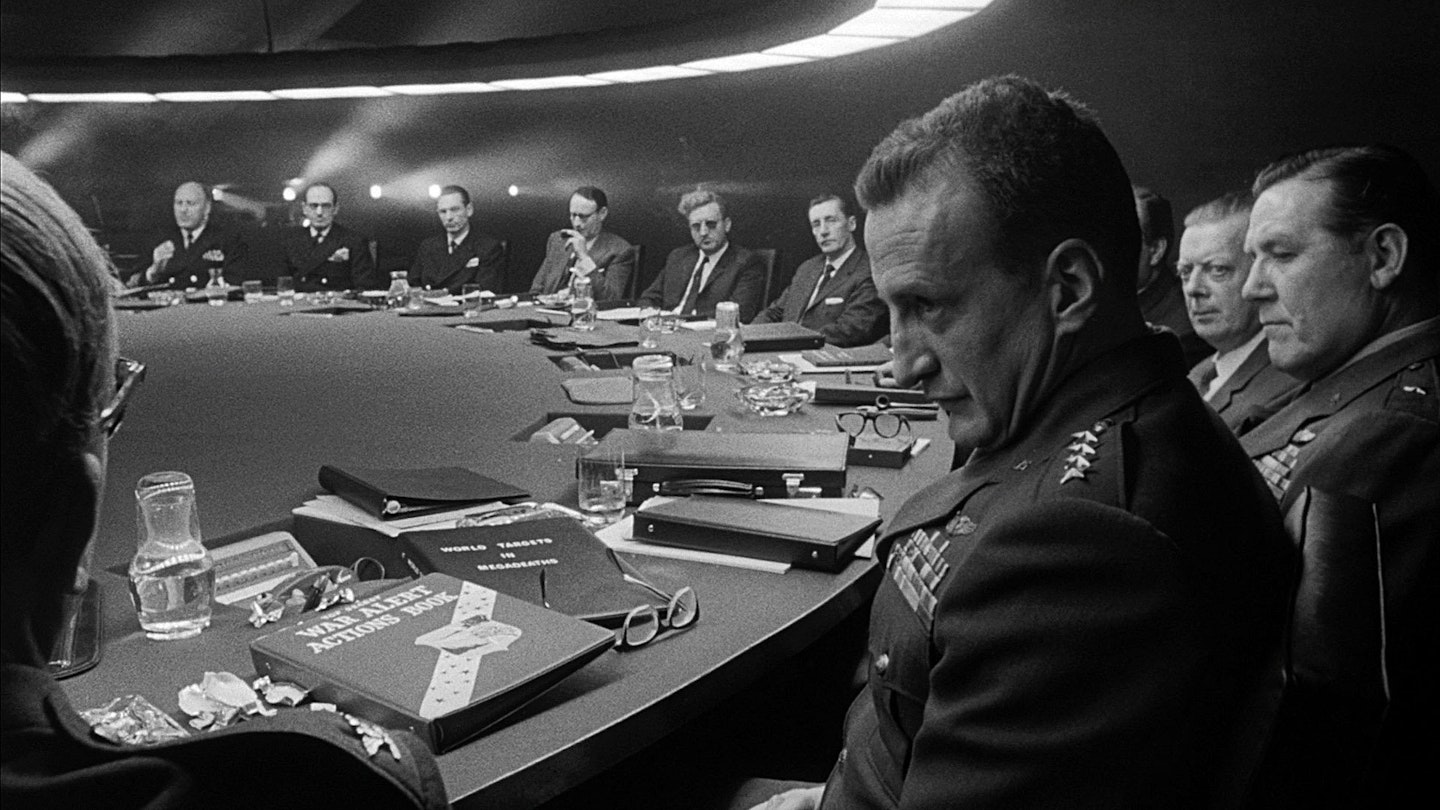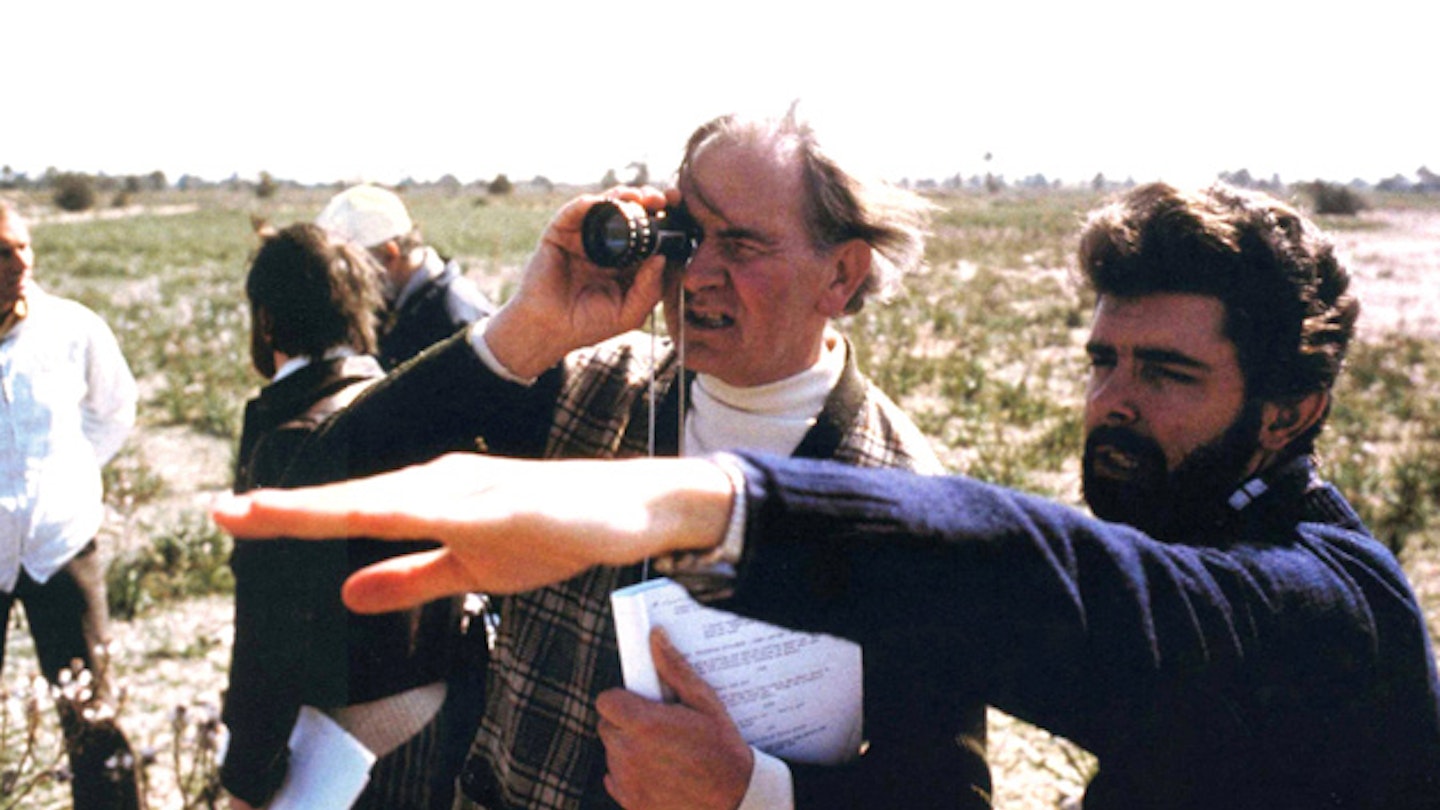If any other director had optioned Red Alert, Peter Bryant's 1958 novel about inadvertent nuclear conflict, it would doubtless have become an earnest Cold War thriller, wagging a sober finger at the folly of war. In fact, that was Stanley Kubrick's original plan, but halfway through a draft he called The Edge Of Doom, the lightbulb popped over his head: a system so inflexible that one mistake could bring on Armageddon wasn't just horrifying – it was blackly hilarious. Exit The Edge Of Doom. Enter Dr. Strangelove.
Kubrick once claimed he scrapped his original ending, in which the War Room degenerates into a piefight, because "it was farce and not consistent with the satiric tone", but that doesn't ring true. This gleefully lewd film is a satire and a farce. The whole plot is set in motion because Sterling Hayden's deranged general thinks Soviet agents are to blame for his impotence. From the opening footage of a B-52 refuelling to the strains of Try A Little Tenderness, to the climactic shot of Major Kong astride his nuke, it's stuffed with innuendo, mostly thanks to co-writer Terry Southern.
On set, meanwhile, Kubrick coaxed George C. Scott into some delirious overacting (much to the actor's annoyance) and gave Peter Sellers, in three key roles, free rein. Nobody's trousers actually fall down, but they wouldn't be out of place if they did. Even 40 years on, you have to admire the boldness of Dr. Strangeloveís bad taste. Kubrick found the apocalyptic logic of nuclear deterrence absurd and offensive, and he gave it the film it deserved.


